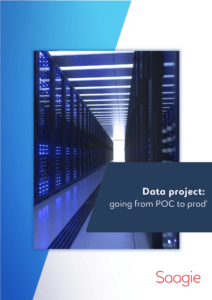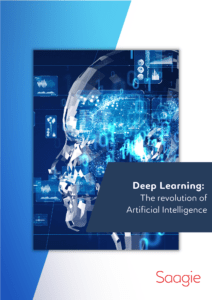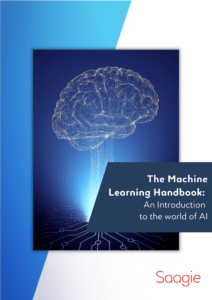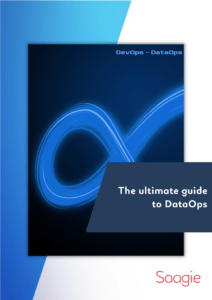Two weeks ago, we had the chance to organize a webinar about the Future of Data Factory with Arnold Haine, CTO at BVA Group, and Barthélémy Longueville, Data expert in the industrial sector, Founder at Tolmay. If you weren’t able to attend, here is what you need to remember!
Some introductive figures
First of all, Gartner showed in the October report that IT infrastructure spending fell 6% in 2020. This is mainly due to the adoption of DataOps in a growing number of companies. Another interesting fact is that the Big Data market will probably reach 67 billions of dollars, more than double the current market (28.7 billions). The two majors expense items are managed services and analysis tools.
In short, the Data Factory will surely be increasingly essential to companies’ digital transformation, for its potential for value creation is growing.
Data Factory: integrated hub making all the technologies handling data available: from ETL tools to data analysis and exploration tools at their final exposure (API, dataviz, business application, etc.)
In this Data Factory (or Data Office), you will find IT Ops, Data Engineers and Data Scientists working to generate business value thanks to DataOps (concept that you already know inside out!).
A feedback from BVA Group
If you haven’t heard about BVA before, it is a research firm (+1000 collaborators in France and abroad), expert in behavioral sciences, putting data science in the heart of its mission. In the last ten years, innovation played a decisive role in the company’s development.
For BVA Group, the adoption of DataOps was a success for at different levels :
- BVA was able to centralize data on a data lake and build scalable and monitored data pipelines thanks to Saagie.
- Thanks to tasks automation, Data Engineers and Data Scientists were able to focus on their mission instead of data preparation.
The next challenges are now to improve data classification, expand the use of Saagie in all BVA business units and develop Data products and services.
The data challenges in the industrial sector
What issues are industrial companies facing nowadays?
The real data wave coming soon is not about personal data, but industrial data. In Europe, we have the technologies to become leaders in terms of industrial data.
Thierry breton - France inter, 12/14/2020
We are all aware that there has been a great wave of personal data that American companies have positioned themselves on in terms of value creation. The next wave to come will regard industrial data, and indeed Europe is technologically equipped. There is an opportunity to seize in a very competitive industrial sector.
Data is a way to generate value. The first challenge is to evaluate how to turn these Data technologies and use opportunities into production. In other words, teams must effectively use these technologies in factories, and then generate value quickly.
A factory is made of people and physical machines. We need to introduce data into existing industry businesses (quality, processes). We need to mix collaborators’ technical and intellectual skills with technologies.
Industrial teams should be able to progress towards a data driven state of mind. Indeed, we have to admit that technologies can simplify, automate and improve various tasks. The challenge is to convince these teams of the benefits they can get from data or AI.
What issues are industrial companies facing nowadays?
Data Office : this organization helps companies implement their digital transformation strategy by developing use cases, communicating to business teams, handling projects portfolio to reach industrialization as soon as possible.
Hybrid DataOps : the Data Factory must be fully integrated with businesses to continuously test the models and improve their quality. Indeed, when data experts work closely with industrial engineers, use cases are more adapted to the reality of the factory.
Skills : this is why bridges have to be built between data and industrial teams. Some companies have already built
What issues are industrial companies facing nowadays?
- Golden Age of DataOps, DevOps and Infra as Code: every tools that will help facilitate and launch resources necessary to build models, develop pipelines and improve the learning process, will expand gradually.
- Data tools democratization: autoML, low code et assisted labeling
- New collaboration types: human/algorithms









